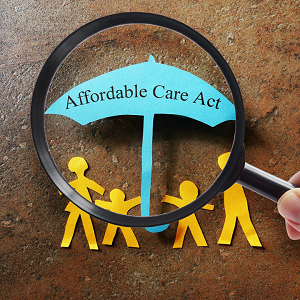By John C. Garner, CEBS, CLU, CFCI, CMC
Chief Compliance Officer
Bolton & Co.
White House Halts Cost-Sharing Reduction Payments
The Trump administration announced on Oct. 12 that it would end cost-sharing reduction payments (CSRs) to insurance carriers participating in the Affordable Care Act (ACA). The administration claims that President Obama usurped the authority of Congress when he authorized the CSR payments. The administration’s action was temporarily upheld by a California federal district court judge on Oct. 25, who rejected a legal action by 18 state attorneys general to reinstate the CSRs until their lawsuit against the administration is resolved. Parallel to this legal action, Congress is considering legislation to restore the CSRs.
The status of the CSRs has little immediate impact on most employers, who have employee health plans outside the ACA. Most carriers participating in the ACA have raised their 2018 premiums to cover the loss of the CSRs. Low-income individuals who qualify for ACA cost-sharing subsidies will see no change to their net premiums or cost-sharing because their tax credits will increase to cover the loss of CSRs. However, middle- or higher-income individuals using the ACA will not receive increased tax credits. Other actions by the Trump administration and Congress may give them other options for low-cost coverage on individual markets.
Employers Adjust to New Federal Cost-of-Living Rates
The federal cost-of-living adjustments (COLAs) for 2018 will affect numerous employee benefits. There will be small increases in the ceilings for some benefit programs, while others will have the same ceiling as in 2017. Benefits or funding devices affected include: voluntary employee salary reductions for contributions to health flexible spending arrangements will increase $50 to $2,650; monthly fringe benefit exclusion for transit and parking will increase $5 to $260; the maximum exclusion for qualified adoption expenses furnished pursuant to an adoption assistance program will increase $270 to $13,840; failing to file correct payee statements, such as W-2s and 1095-Cs will increase $10 to $270 (since forms must be provided both to the employee and the IRS, the total is $540 per employee). For more important details, visit http://dmec.org/2017/10/20/irs-announces-number-2018-cost-living-adjustments/.
Reasons to Begin Disaster Planning Now
Headlines about Hurricanes Harvey, Irma, and Maria, plus U.S. west coast earthquake predictions should prompt employers to prepare for the next natural disaster. Group health plans are required by the Health Insurance Portability and Accountability Act security regulations to have data backup plans, disaster recovery plans, and emergency mode operations plans.
New guidance from the Internal Revenue Service (IRS) permits employers to waive the restrictive rules usually imposed on loans and hardship distributions from tax-favored retirement plans. The guidance also permits employers to adopt leave-based donation programs to facilitate contributions to charities assisting victims of the disasters. In addition to the new relief, employers may also make “qualified disaster relief payments” directly to employees under certain circumstances. IRS Notice 2017-48 allows employees to donate vacation, sick, or personal leave in exchange for cash payment that the employer makes to an eligible charitable organization. As long as certain requirements are met, the employee is not subject to tax on the value of the leave, and it will not be included in income. The employee is not entitled to a charitable deduction; however, the employer may be eligible for a deduction for the donation. To learn much more, visit http://dmec.org/2017/09/28/disasters-prompt-employers-plan-next/.




